Graham Reid | | 5 min read
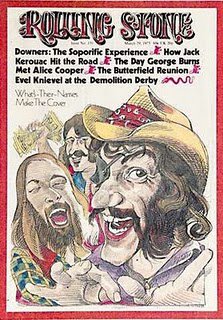
Dennis Locorriere spends most of the
hour laughing and is more amused than irritated that many people
mistake him for someone else. Locorriere - with slight streaks of
silver at his temples and celebrating his 54th birthday on this day -
is the voice of Dr Hook.
But he wasn't the face of that
Seventies hit-making machine which cluttered up radio with songs like
Sylvia's Mother, Cover of the Rolling Stone and When You're in Love
With a Beautiful Woman.
The face, with the distinctive
eyepatch, belonged to Ray Sawyer who in a further blurring of the
memory these days tours as "Dr Hook".
Locorriere sang most Hook songs --
including harmonies in the studio -- and wrote much of their
material, some with acclaimed songwriter and Playboy cartoonist Shel
Silverstein. But still people mistake him for Sawyer, or say he looks
better without the patch. Yet he is remarkably forgiving.
"If you think about Hook being
pre-video band, then saw us on television for three minutes, you'd
only remember the guy with the eyepatch.
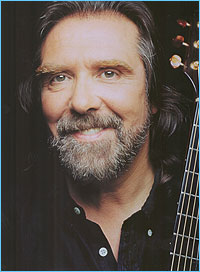 “Hey, that's all I remember. But it
was lucky we had a guy who looked like that because we were touring
with guys like Alice Cooper and all these pyrotechnic bands, so at
least we had something for people to look at.
“Hey, that's all I remember. But it
was lucky we had a guy who looked like that because we were touring
with guys like Alice Cooper and all these pyrotechnic bands, so at
least we had something for people to look at.
"The rest of us looked like
hippies. I had a long beard and a Dickens coat and later people would
say, 'Oh, you look really good now'. That was because I spent my
childhood looking like my own grandfather."
Locorriere – now living in England
after 15 years of semi-retirement in Nashville - laughs again. But
that Hook confusion makes things difficult for him on his solo tours.
"I don't know who my audience will
be. I think a percentage is going to wonder where my eyepatch is, I
really do. But they'll be entertained and leave knowing what they
came to see. As soon as I walk on stage I start a dialogue with the
audience, and me talking is as much a part of the show as singing all
those great old songs.
"Ray has the same problem. People
talk to him about all these songs he sang, and it was me. I'd rather
be the stranger to the audience on the way in so when people are on
their way out they go, 'Oh, that guy'. "
And it's better solo than performing
with Sawyer: "If there are a couple of guys on stage they are
going to want to know which is Dr Hook. But now it's just me and a
table. So it's either me, or the table. I couldn't have made it any
easier."
Locorriere -- despite having songs
covered by Bob Dylan and Olivia Newton John, and singing on albums by
Nashville neighbour John Hiatt, Randy Travis and Travis Tritt --
happily reminisces about Dr Hook, the bar band he formed in New
Jersey with Sawyer in '68, "playing anything to keep the drunks
from killing us".
Hook's zany on-stage antics, hits from
Silverstein which were farcical and funny, and their circus-like
tours made their reputation. The song Cover of the Rolling Stone got
them the cover (the BBC wouldn't play it, they regarded it as
advertising) and their tours were notorious.
"We were like a big commune. So we
were bankrupt in mid-70s, then came back and did all right. No one
got rich - we were pre-video, so if you needed to see us we needed to
be there. We earned a lot but we were a seven-piece band with
families, toured with a five- or six-man road crew, and had an office
staff. It was Dr Hook Inc. It took a lot of money to keep it going."
And they were self-indulgent days, too?
"Yeah, when you first go on the
road you party every day because you think it's going to last six
weeks. But after it keeps going you look at the itinerary and think
that alone could kill you. So after six days in row I didn't want to
do cocaine, I wanted to watch television.
"None of us ended up in rehab, no
one did anything to that extreme. We had a great time on stage but it
was really like the drunk on the high wire. If he was really that
drunk he'd be dead a long time ago. That was us."
Sawyer left in '83 and Locorriere kept
the band going, to diminishing audiences, before calling it quits in
'85. "We'd had our day and that's the reason I wouldn't do a
reunion. I loved it and I'm proud of it, but I don't want to put a
band together and call it Dr Hook. Ray gets away with it because of
the way he looks."
He seldom sees the former members now -
drummer John David died a couple of years ago - but says when they
were touring 300 nights a year they were always happy to get away
from each other.
"It's like being in the army and
you are down in the trenches with the bullets going over your head.
You swear to God if you live through it you'll all have a barbecue.
When the war's over everybody goes home, and that's what we did."
Locorriere retired to Nashville "to
escape the music business," he laughs. "In fact to be close
to the industry but not part of it" -- and had his 15-year-old
son, whom he had seldom seen in Hook days, come to live with him.
He did a little writing, played and
sang on a few sessions and loved being in a music town without
feeling the need to "get back on the bus". His return to
performance was prompted by Shel Silverstein writing a one-man play
-- The Devil and Billy Markham -- and convincing him to perform it at
the Lincoln Centre in '89.
"It got good reviews, which did a
lot for my confidence because people didn't know who I was. A friend
came one night and said afterwards two old ladies were looking at the
brochure and one said, 'I don't know who he is' and the other said,
'Well, it says here he used to be a doctor'. That was great - they
didn't care who I was, but I was entertaining.
"The play made me think I should
get back out and try the thing I'm supposed to be doing. If you
listen to people in this business I'd have been dead for years. I had
a high-powered showbiz attorney ask me when I was 38 how old I was. I
told him and he said I had maybe a couple of years left. I said,
'What? Did you see my x-rays?' That gets you checking your pulse
every day and that's no way to live. I can still do this.
"My biggest fear is I'm going to
die of some rare disease no one has ever had and they're going to
name it after me. But they won't know how to spell 'Locorriere' so
they're going to call it Dr Hook Disease -- and Ray's picture will
run with the article."

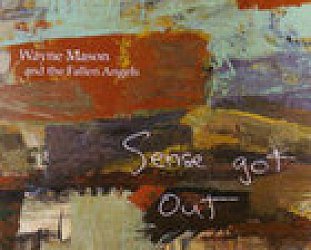
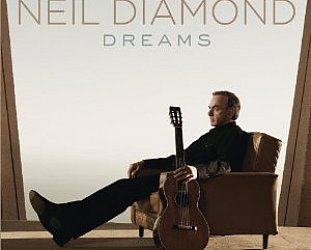
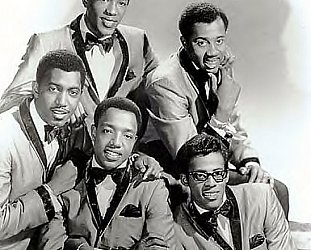
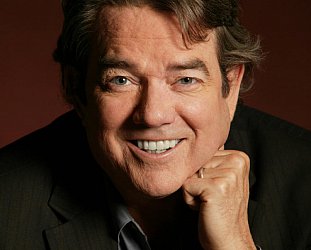


post a comment